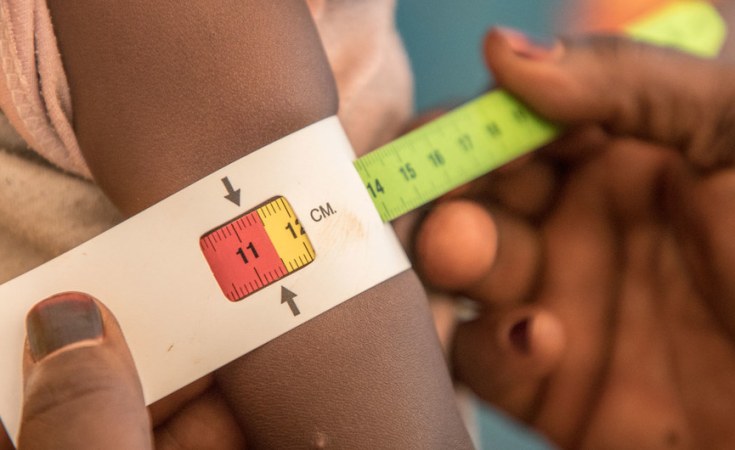Douala — Health workers, officials and humanitarians from 15 French-speaking sub-Saharan countries are meeting in Cameroon's economic capital, Douala, to discuss chronic child malnutrition in the region.
Many of the children in crisis have been displaced from Sudan and other conflict-ridden countries. Their chronic malnutrition, say those at the meeting, has been compounded by climate shocks that make food and safe water increasingly scarce in sub-Saharan Africa.
"All United Nations agencies are very worried that several million children suffering from acute malnutrition in sub-Saharan Africa risk dying before they celebrate their fifth birthday," said Simeon Nanama, UNICEF's regional nutrition adviser for West and Central Africa. "Close to 7 million children affected by acute malnutrition are in dire need of help to save their lives."
In December, officials in Cameroon pointed to the mass immigration of women and children seeking to escape communal violence and Boko Haram terrorists who operate in Cameroon, Chad and Nigeria and other countries.
Last week, Chad's President Mahamat Idris Deby declared a food and nutritional emergency throughout the central African state. Deby pleaded for international support, especially for children under the age of five, who he said were suffering from acute malnutrition.
The United Nations says malnutrition is the second-leading cause of death among children after malaria in sub-Saharan African countries.
The Douala meeting aims to update health and humanitarian workers on U.N. guidelines issued in December about how to prevent and manage acute malnutrition to save the lives of millions of malnourished children.
"For the first time, WHO is providing guidance on how to prevent malnutrition and also for the first time we have guidance on how to detect earlier those children that are at risk of poor growth and development," said meeting participant Laetitia Ouedraogo Nikiema, a World Health Organization consultant and former public health, nutrition and research expert with WHO's Africa region.
Ouedraogo said the new plan envisages more integration of nutrition services into health systems.
The U.N. has said it intends to give more food and health assistance to the governments of countries most unable to care for malnourished children. The U.N. has a goal of eliminating acute malnutrition by 2030.
The U.N. said the plan faces challenges as the proportion of children with acute malnutrition persists at what it calls worrying levels; at least 216 million African children still suffer from stunting and malnutrition.


